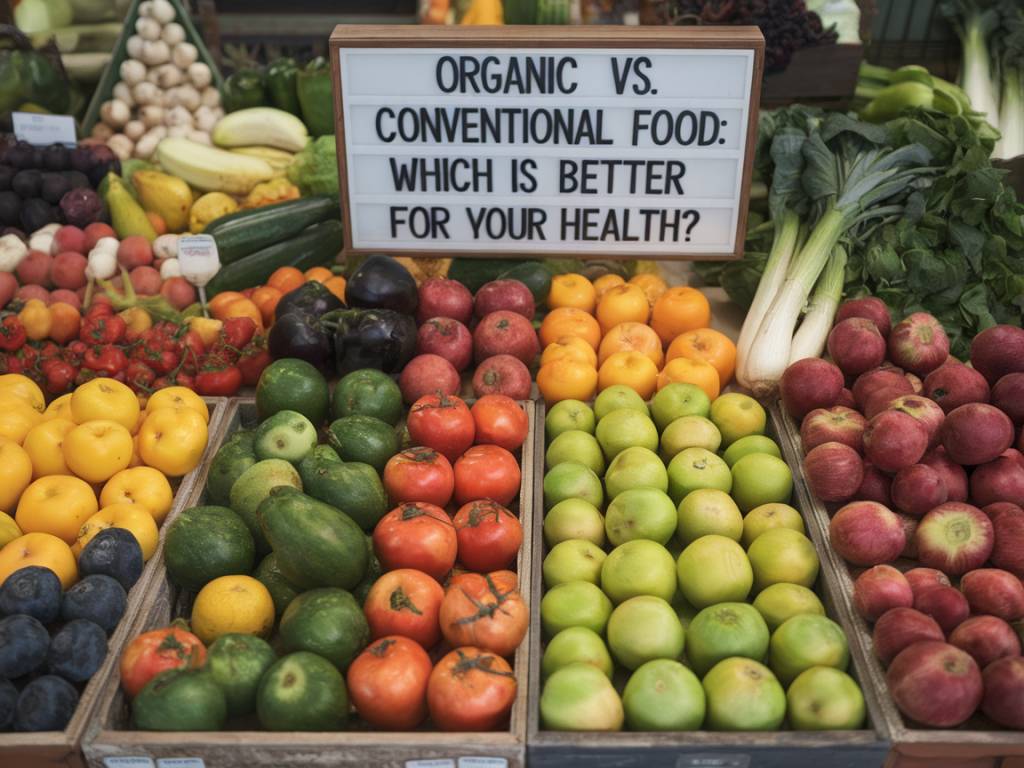When it comes to choosing between organic and conventional food, the debate is as ripe as a farmer’s market on a Saturday morning. Both sides have passionate proponents, each touting the benefits of their chosen method. But what’s the real deal? Which is actually better for your health? Grab a cup of herbal tea and let’s dive into the juicy details.
The Basics: Organic vs. Conventional
First things first, let’s clarify what we mean by « organic » and « conventional » when it comes to food. Organic foods are grown without the use of synthetic pesticides, fertilizers, genetically modified organisms (GMOs), or ionizing radiation. They aim to foster environmental sustainability and biodiversity. On the other hand, conventional foods are produced using modern agricultural techniques, which may include synthetic chemicals or genetic modifications to increase yield and durability.
Health Benefits of Organic Food
Many people choose organic foods due to concerns over pesticides and additives. But does organic really mean healthier? Here are some key points:
- Fewer Pesticides: Organic farming minimizes pesticide use. Although traces of chemicals on conventional foods are generally considered safe, some people prefer to err on the side of caution.
- Higher Antioxidant Content: Some studies suggest organic produce contains higher levels of antioxidants, which are beneficial for fighting free radicals in the body.
- Better for Certain Allergies: Anecdotal evidence suggests that some people with specific allergies or sensitivities may fare better on an organic diet.
Benefits of Conventional Food
While organic foods have their advantages, conventional foods come with their own set of benefits, mainly in terms of cost and accessibility:
- Affordability: Conventional foods are generally more affordable. This allows for a more balanced diet within a budget, which is essential for many families.
- Longer Shelf-life: Conventional methods often extend the shelf-life of foods, which can be convenient for reducing waste.
- Higher Yield: Efficient production techniques usually mean that conventional supplies can meet the demands of a growing population, ensuring food security.
Nutritional Content: Is There a Big Difference?
Contrary to popular belief, the nutritional difference between organic and conventional foods is not as vast as one might think. Research has shown that there are no significant differences in vitamin and mineral levels between the two. So if you’re hoping for a magical nutrient boost, you might not find it in that organic apple.
Environmental and Ethical Considerations
Besides health, the environmental and ethical impacts of food choices are significant factors to consider:
Organic Methods: Organic farming tends to be more environmentally friendly. It supports biodiversity and reduces pollution from synthetic fertilizers and pesticides. Plus, it often emphasizes animal welfare, which is a plus if you’re concerned about the treatment of farm animals.
Conventional Techniques: These methods often prioritize efficiency and yield. While this can lead to environmental drawbacks, improvements in agricultural technologies are continuously being made to reduce harm.
Making the Right Choice for You
So, how do you decide whether to go organic or stick with conventional foods? Here are a few tips:
- Prioritize What Matters: Consider what factors are most important to you — is it cost, environmental impact, or minimizing pesticide exposure? This can guide your choices.
- Mix and Match: You don’t have to choose one over the other entirely. Many people opt for organic when it comes to produce known for high pesticide residues, like strawberries or spinach, and go conventional for items that are less affected.
- Local Options: Buying local, whether organic or conventional, reduces the carbon footprint associated with shipping. Plus, it supports your local farmers.
Final Thoughts
Whether you fill your cart with organic kale or opt for the more budget-friendly conventional veggies, the key is to maintain a balanced and diverse diet. After all, the best choice is one that fits your lifestyle, preferences, and values. Remember, health is about the big picture – so eat well, stay active, and don’t stress too much over whether your carrot took the organic route or the conventional highway to your plate!
As always, keep nourishing yourself with knowledge. Stay curious, and remember that every bite you take is a step towards better health.

